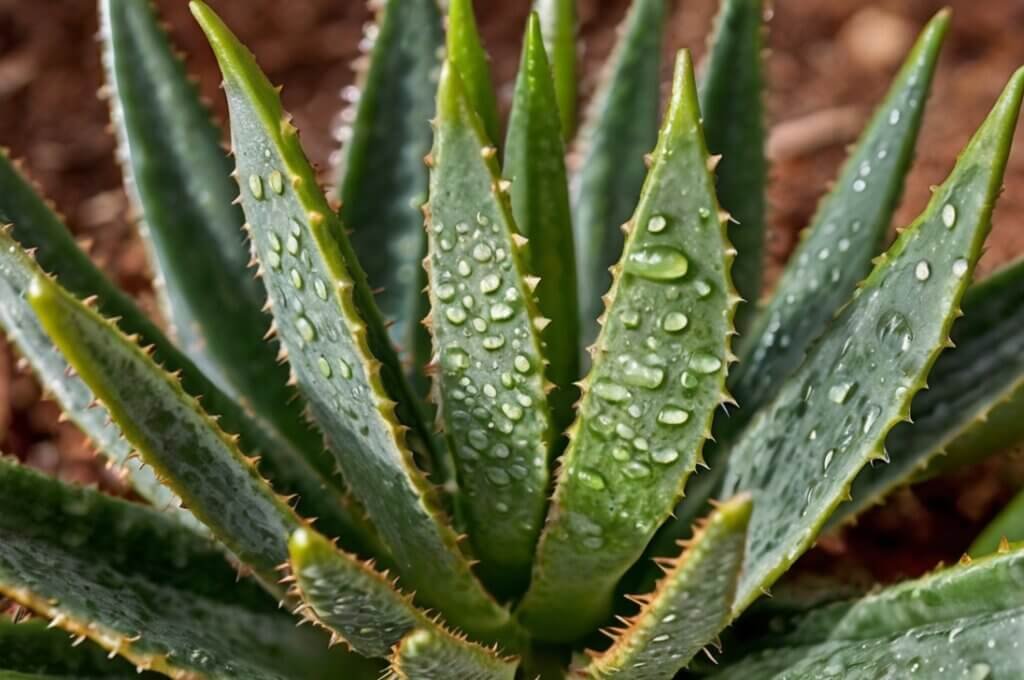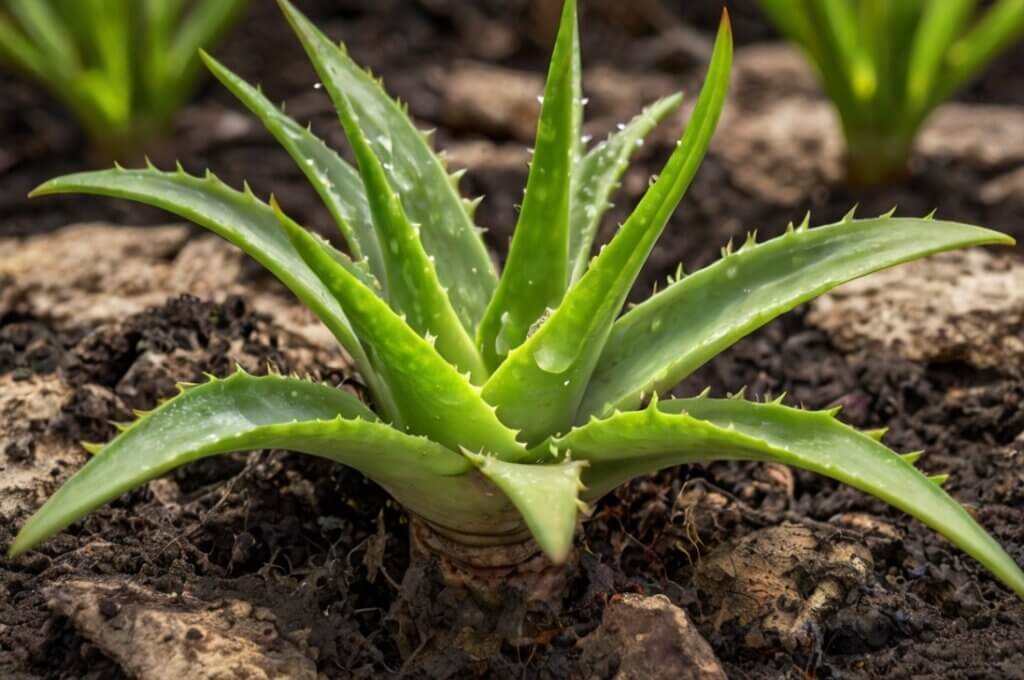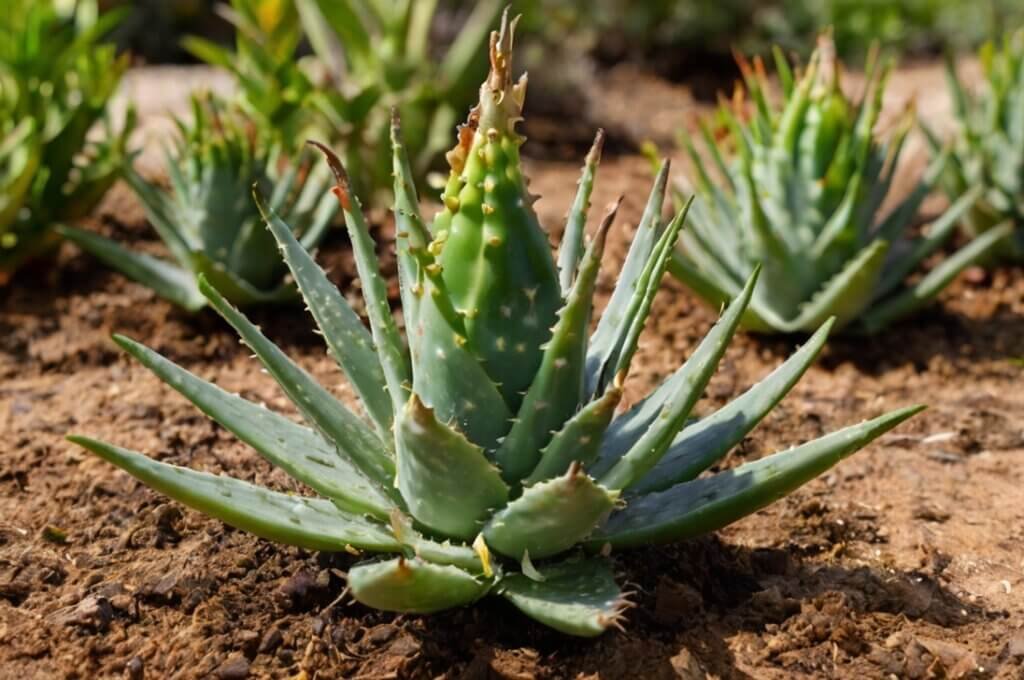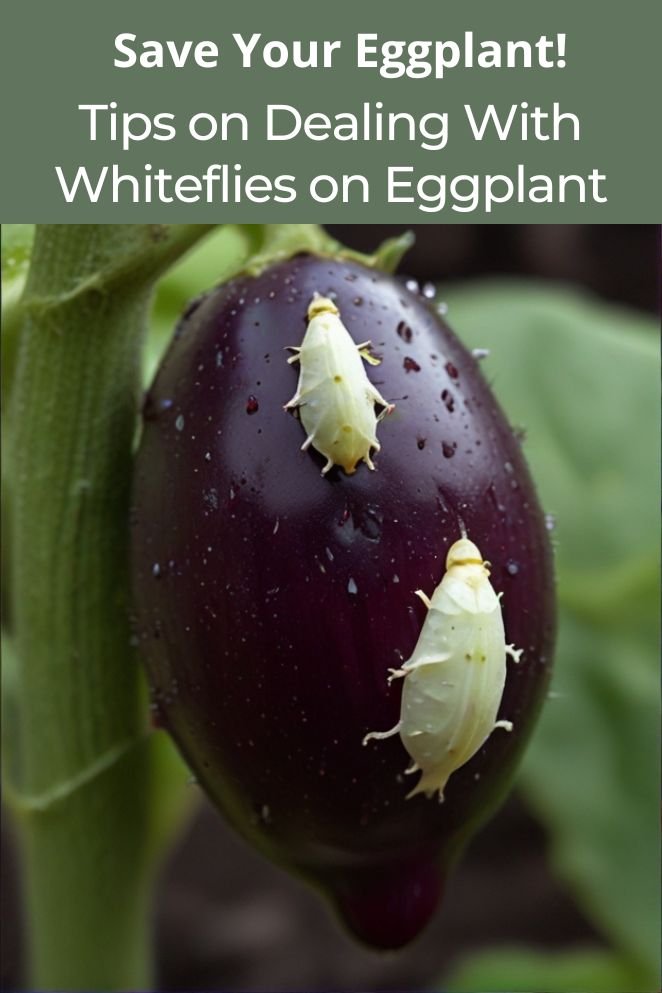
Eggplant is a popular vegetable among gardeners, known for its rich flavor and versatility in cooking.
However, one of the most common pests that can affect eggplant is the whitefly.
Whiteflies are tiny, winged insects that feed on the sap of plants, causing damage and stress.
In this article, we’ll explore the signs of whitefly infestation on eggplant, the damage they can cause, and provide organic and non-organic control methods to deal with these pests.
Signs of Whitefly Infestation on Eggplant
Keeping a watchful eye on your eggplant crop is crucial, and whiteflies can be a real nuisance.
Here’s how to identify a whitefly infestation on your precious eggplants:
Direct signs of whiteflies
- Tiny white flying insects: The most obvious sign is the presence of small white insects with wings fluttering around your eggplant plants.
- Disturbing the leaves: If you gently brush or tap the leaves, a white cloud of these tiny insects may erupt, indicating a significant infestation.
Indirect Signs of Whitefly Damage
- Yellowing leaves: Whiteflies feed on plant sap, weakening the plant and causing leaves to turn yellow. This yellowing often starts between the veins and progresses outwards.
- Sticky residue (honeydew): As whiteflies feed, they excrete a sugary substance called honeydew. This sticky residue coats the leaves and stems, creating a shiny appearance.
- Sooty mold growth: The honeydew left behind by whiteflies is a breeding ground for sooty mold.
- Stunted growth: Whitefly infestations can significantly hinder the growth of your eggplant plants.
- Presence of ants: Ants are attracted to the honeydew produced by whiteflies. Seeing ants crawling on your eggplant plants can be an indirect sign of a whitefly infestation.
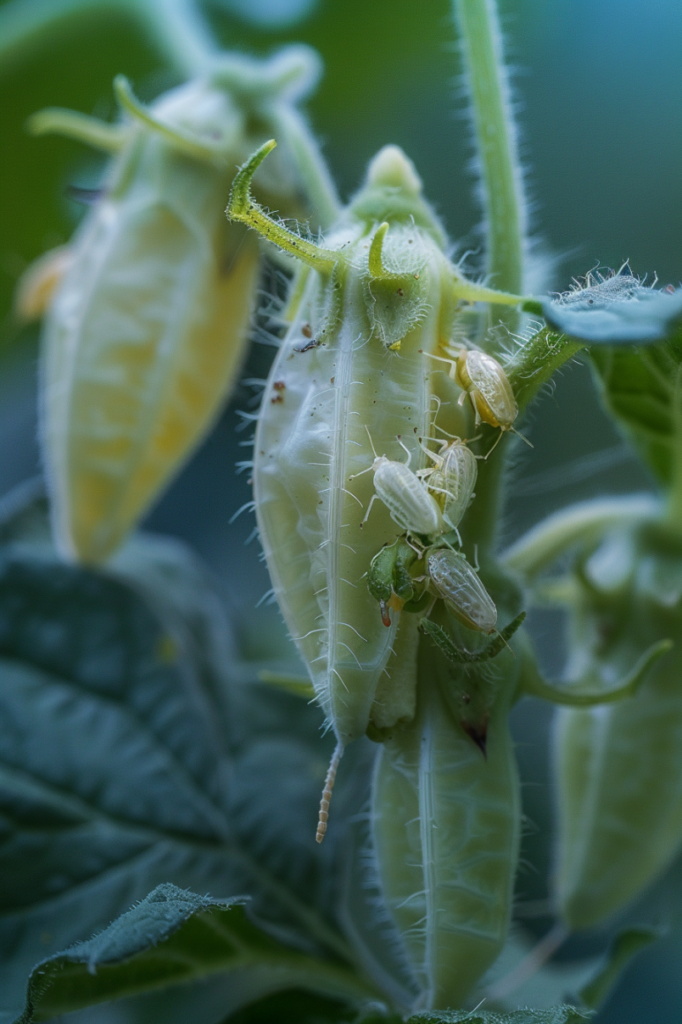
Whiteflies Damage on Eggplant
Whiteflies, those tiny, winged menaces, can wreak havoc on your precious eggplant crop.
Let’s delve into the different ways these pests damage your eggplants:
Direct damage
- Sap sucking: Whiteflies have piercing-sucking mouthparts. They pierce the leaves and stems of your eggplant, sucking out essential fluids and nutrients.
- Reduced photosynthesis: The sticky honeydew whiteflies excrete coats the leaves, blocking sunlight. This disrupts photosynthesis, the process by which plants convert sunlight into energy for growth.
Indirect damage
- Nutrient imbalance: The constant sap-sucking by whiteflies can disrupt the plant’s nutrient balance.
- Sooty Mold Growth: The honeydew whiteflies leave behind is a breeding ground for sooty mold.
- Increased risk of disease: Stressed and weakened plants due to whitefly damage are more susceptible to other diseases.
Impact on eggplant yield
- Reduced fruit production: Eggplant plants struggling with whitefly damage will have less energy to produce fruit.
- Deformed or discolored fruit: Severe whitefly infestations can lead to deformed or discolored eggplants.
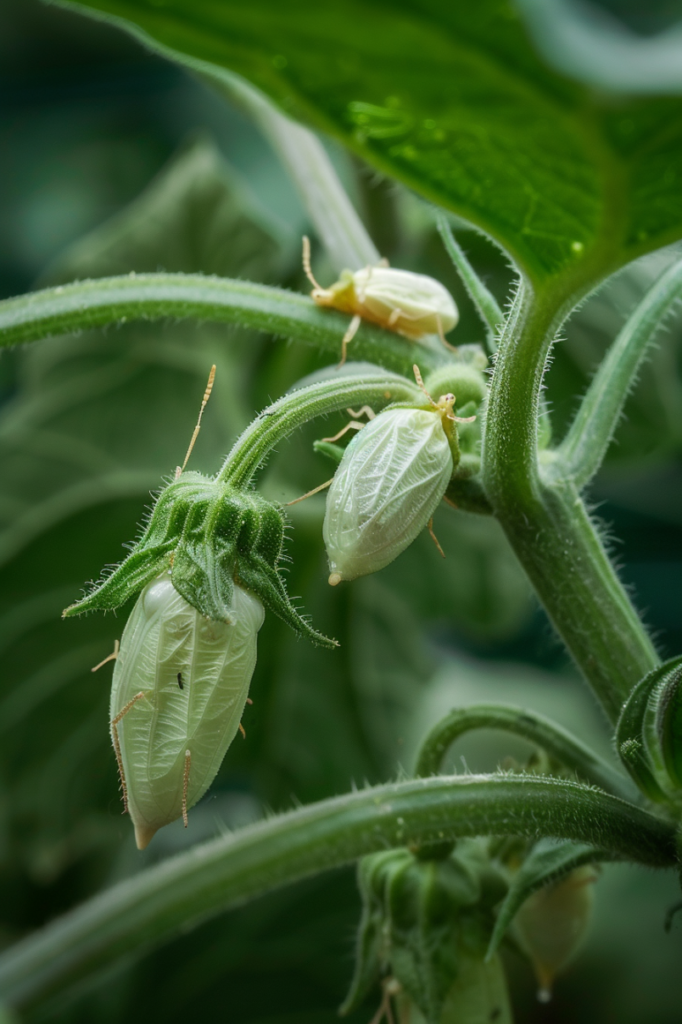
Organic Control Methods
When dealing with pesky whiteflies in your garden, organic control methods offer effective solutions that are environmentally friendly and safe for your plants and health.
Here’s a closer look at these methods and how you can implement them:
Natural predators
Introducing natural predators like ladybugs or lacewings to your garden can help keep whitefly populations in check.
These beneficial insects feed on whiteflies and their larvae, helping to naturally control their numbers.
Ladybugs and lacewings can be purchased online or at garden centers and released into your garden where whiteflies are present.
Insecticidal soap spray
An insecticidal soap spray is a simple yet effective way to combat whiteflies without resorting to harmful chemicals.
Mix insecticidal soap with water according to the instructions on the product label and spray it directly onto the affected plants.
The soap works by suffocating the whiteflies on contact, effectively killing them without harming beneficial insects or the environment.
Neem oil spray
Neem oil is another natural pesticide that can be used to control whiteflies and other garden pests.
Mix neem oil with water according to the instructions on the product label and spray it onto the affected plants.
Neem oil works by disrupting the life cycle of pests and inhibiting their ability to feed and reproduce.
Additionally, neem oil has antifungal properties that can help protect plants from diseases.
Encourage beneficial insects
Create a welcoming environment for beneficial insects like ladybugs, lacewings, and parasitic wasps by planting flowers and herbs that attract them.
Plants such as dill, fennel, yarrow, and marigolds are known to attract beneficial insects to the garden.
By providing these plants, you can attract natural predators that will help control whiteflies and other pests.
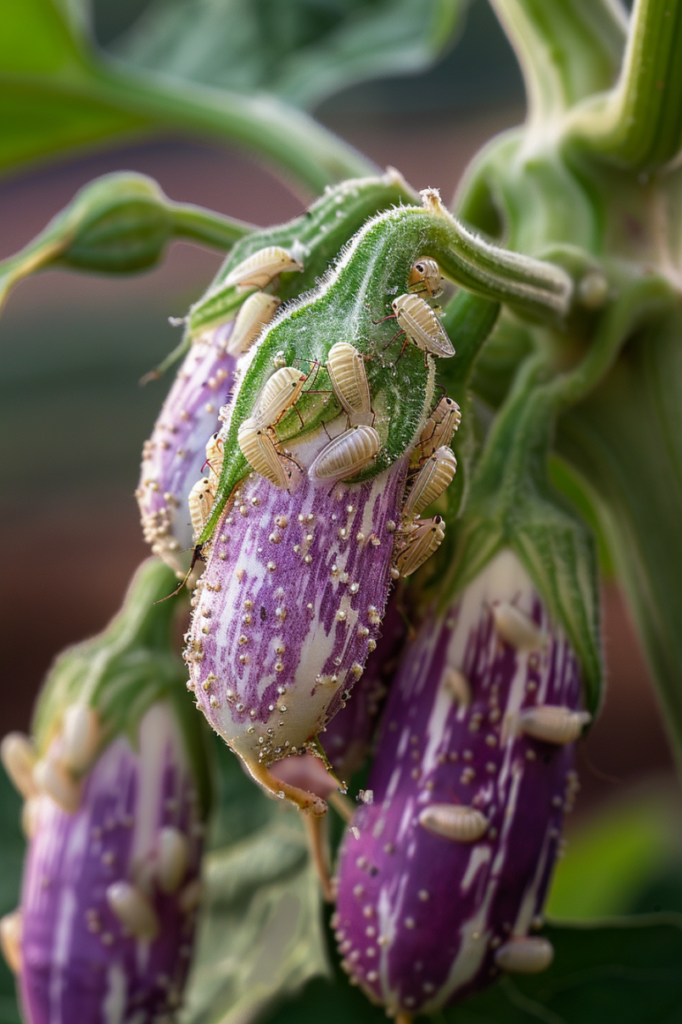
Non-Organic Control Methods
If organic solutions fail to tackle whitefly infestations, non-organic methods can be considered.
Here are some options to explore:
Insecticide options
There are various insecticides available that effectively target whiteflies.
However, it’s crucial to handle them with care and responsibility.
Follow the instructions provided on the product label meticulously.
Apply the insecticide according to the recommended dosage and frequency.
Always wear protective clothing, such as gloves and a mask, when handling and applying insecticides.
Importance of following instructions
Emphasize the significance of using insecticides safely and responsibly.
Adhere strictly to the instructions provided by the manufacturer to maximize effectiveness and minimize risks.
Following the label instructions ensures proper application and dosage, reducing the likelihood of adverse effects on non-target organisms and the environment.
Prioritize safety by wearing appropriate protective gear, such as gloves, goggles, and a mask, when handling insecticides.
Preventative Measures
Preventative measures play a crucial role in effectively managing whitefly infestations and maintaining the health of your garden.
Here are some methods to consider implementing:
Row covers
Utilizing row covers is an effective way to protect young plants from whiteflies, particularly during the early stages of infestation.
These covers act as a physical barrier, preventing adult whiteflies from accessing the plants and laying eggs.
By covering susceptible plants with row covers, you can create a shielded environment that inhibits whitefly infestation and promotes healthy growth.
Sticky traps
Deploying yellow sticky traps is a valuable tool for monitoring and capturing whiteflies in your garden.
These traps attract adult whiteflies with their bright color and sticky surface, effectively trapping them upon contact.
By placing sticky traps strategically throughout your garden, you can monitor whitefly activity, reduce the population, and prevent further infestation.
Maintaining garden hygiene
Maintaining good garden hygiene is essential for preventing whitefly infestations.
Remove weeds and debris from your garden regularly, as these can serve as hiding places and breeding grounds for whiteflies.
Clearing away plant debris also helps to improve air circulation and reduce humidity, creating less favorable conditions for whiteflies to thrive.
Crop rotation
Implementing crop rotation practices can help disrupt the life cycle of whiteflies and reduce the risk of infestation.
Rotate susceptible plants, such as eggplants, to different locations in your garden each season.
This prevents whiteflies from building up populations in the soil and reduces the likelihood of reinfestation.
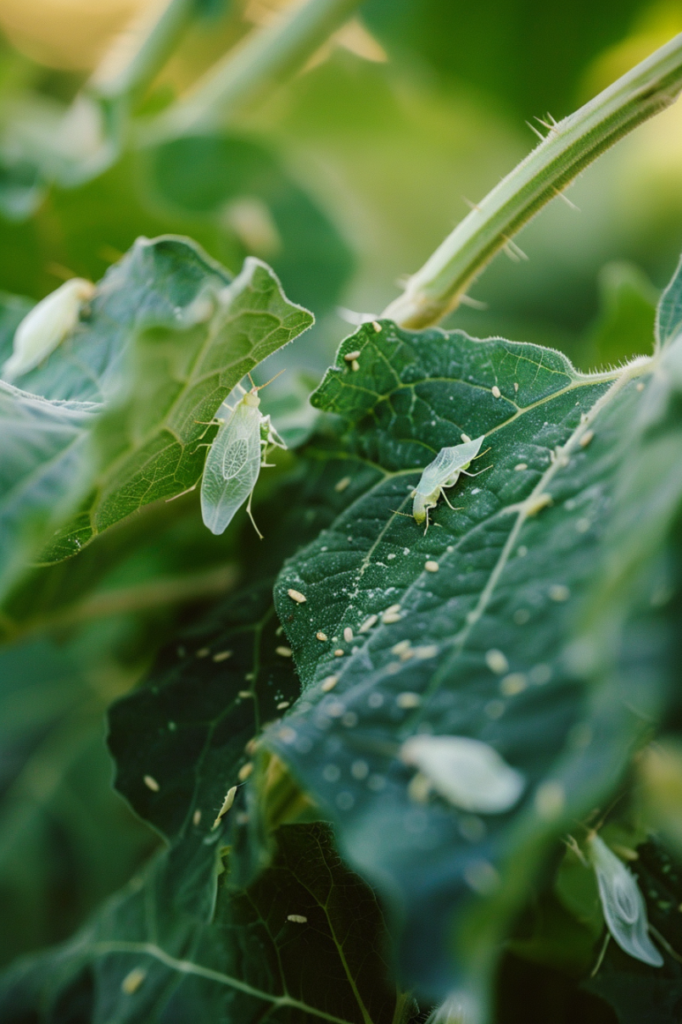
Conclusion
Dealing with whiteflies on eggplant requires a combination of organic and non-organic control methods.
By understanding the signs of infestation, the damage they can cause, and the methods to control them, you can protect your eggplant plants and enjoy a healthy and productive harvest.

